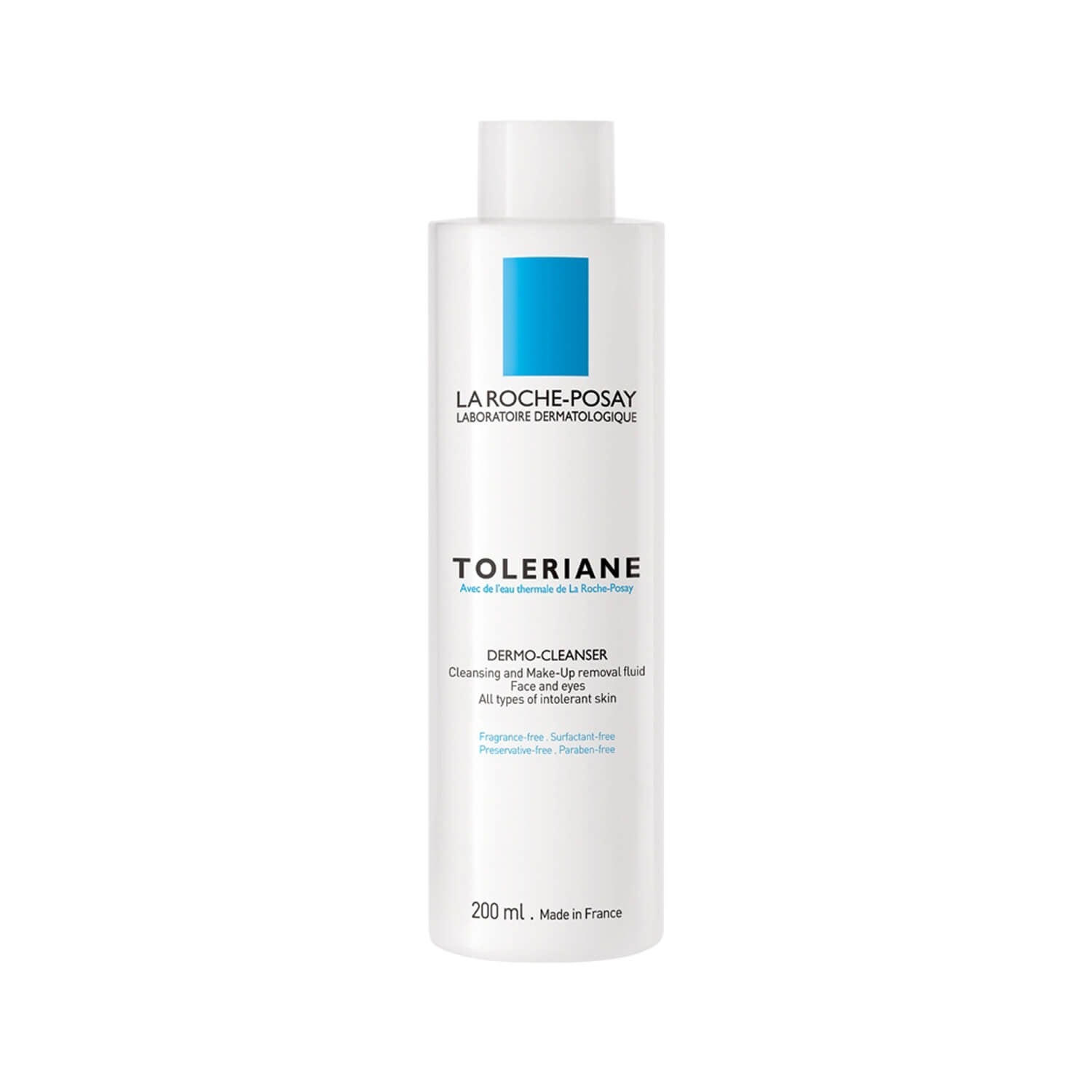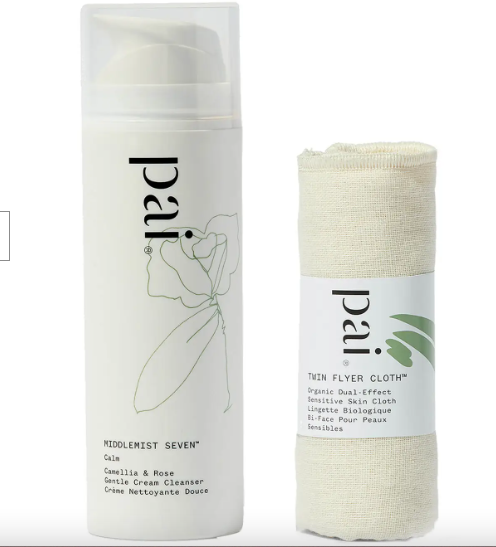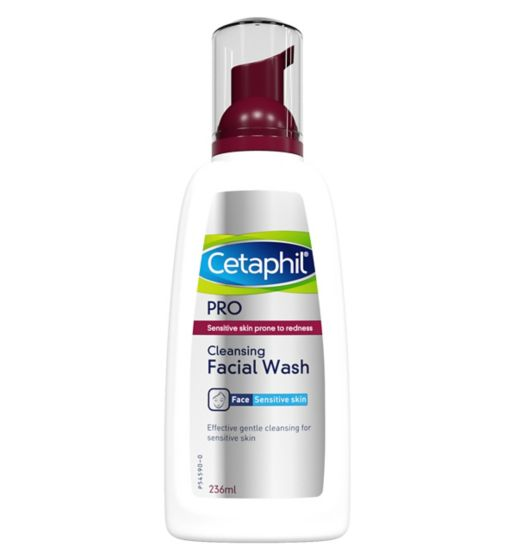When I was diagnosed with rosacea I had never even heard the word before, let alone understood what it meant or how to cope. At the time, my GP gave me a name for my purple, burning, bumpy face – and not much else.
It is human nature to attempt to fill the gaps in our knowledge but unless we are incredibly discerning about where we get that information from, it can cause more issues. Fifteen years ago, I turned to the internet for advice and found so much that helped. But I also came across a lot of outdated recommendations and misinformed opinions.
AdvertisementADVERTISEMENT
Now that I am a rosacea campaigner and British Skin Foundation ambassador, I understand the condition better. Ahead, I debunk nine common rosacea myths and why they are so damaging.
"It's just blushing"
To those who know little about the condition, rosacea is easy to diminish. You're likely to hear "Blushing is cute", "At least you’ll never need to buy blusher" and "It’s not exactly a serious skin condition, is it?"
At its worst, my skin would burn, itch, swell and throb. It stopped me sleeping and distracted me from work. That’s before I consider the psychological aspects: cancelled dates, avoiding speaking up at university and work, spending hours in front of the mirror crying and feeling hopeless. I am now seeing a therapist to work on the years of damage to my confidence.
Dr Anjali Mahto, consultant dermatologist at Skin55, points out that rosacea is often managed badly. "It seems to fall between the medical and cosmetic world," she says. "Living with a visible skin condition can be extremely difficult, especially one that has a habit of flaring up at the most inconvenient of times or can be triggered by stress. As always, the impact that one’s skin can have on their self-esteem and body image should never be trivialised or ignored."
"Only middle-aged people get rosacea"
I feel lucky that my first GP immediately recognised my rosacea and didn’t let my age (I was 21) dissuade him from that diagnosis. Unfortunately, others are not so lucky. I hear from many people who have been told that because they’re under 30, it can’t be rosacea. I already felt isolated by my skin but reading forums where my skin and concerns were dismissed because I was 20 years younger than most of the other sufferers was particularly hard.
AdvertisementADVERTISEMENT
As Dr Mahto points out: "While the peak ages we see rosacea are between 30 and 60 years, it is entirely possible to see patients younger and older than this in clinical practice. It is possible to have early signs suggestive of the condition such as facial redness, but diagnosis is not made until a much later age."
"Only white people get rosacea"
Although more common in people with fairer skin tones, research suggests that people of colour do have rosacea. I’ve had many conversations with people whose concerns have been dismissed without examination due to their skin tone, or their symptoms missed completely. Just because symptoms are harder to spot, it doesn’t mean they are not there.
According to the Black Skin Directory, markers of rosacea in dark skin include: burning or stinging of facial skin, the face feeling warm all the time, unidentified discolouration, dry, swollen patches of skin and acne-like spots that do not clear up with treatment. It is advised you report these symptoms to a GP or a dermatologist.
"It's the same as acne"
When I first developed rosacea I had papules and pustules all over my cheeks. As I never had any issues with my skin before, I assumed I had acne. Dr Mahto explains that the conditions may appear similar to the untrained eye but they are medically distinct, and this is important to know. "Many of the ingredients used for acne treatment (salicylic acid, vitamin A, exfoliators) can cause irritation of rosacea-prone skin, resulting in dryness, sensitivity and worsening of redness," she says. "If your skin is prone to redness or flushing, you rarely get blackheads, your skin is sensitive and your spots do not affect the back or chest, this is suggestive of rosacea rather than acne."
AdvertisementADVERTISEMENT
"It's caused by drinking"
A red face and enlarged nose (also known as rhinophyma) has long been associated with drinking, so this is a hard stereotype to avoid when you have rosacea. I’ve been accused of being drunk, lectured about my drinking habits and told that overindulging in alcopops at university is what 'caused' my rosacea. Drinking does not cause rosacea but it is a common trigger, so you can see where the association came from. I was told that if I was serious about helping my rosacea, I should give up drinking completely. (At 21, this was laughable.)
"There's no point in seeing a doctor, as there's no cure"
Knowing that a condition has no cure can be incredibly disheartening. When I was first diagnosed, I was in denial about my skin and the impact of my actions. I thought, What's the point in depriving myself of alcohol, hot baths, delicious food and late nights if none of it will cure me? Why couldn’t I just carry on as normal? Over time I realised that although it would never disappear entirely, my rosacea could be controlled. Many people come to me for advice because they are worried about wasting a dermatologist’s time or that their concerns won’t be taken seriously. Dr Mahto often uses her Instagram account to talk about the psychological side of living with skin conditions. "Any skin condition which is restricting your daily life or affecting how you feel should be taken seriously by a dermatologist. We want to put you in a position where you feel you are in control of your skin and your skin is not controlling you."
AdvertisementADVERTISEMENT
Of course, dermatologist appointments can be expensive, so here's the best way to speak to your GP about skin issues.
"You have to give up all of your triggers"
When looking at the possible triggers for rosacea, it is easy to feel overwhelmed. From temperature and diet to skincare and stress, it pretty much covers everything. I wish someone had told me 15 years ago that triggers are individual: they are not hard and fast rules. For example, I see huge benefits from limiting my intake of alcohol and dairy but if I want to have friends over for a wine and cheese evening I understand that although my skin might not be happy, I will be. Once you know your triggers and the impact of them, you can make your own adult decisions on what is worth the reaction.
"Makeup makes rosacea worse"
Whenever I post a photo of myself wearing makeup, I get comments from people telling me that I should let my skin 'breathe' (another myth!) and that my skin would be healthier without makeup. Personally, the stress of being outside without makeup is enough to trigger a flare-up, so for me the opposite is true. However, you should be mindful of the products you are using on your skin.
I asked Dr Mahto to share her rosacea makeup tips. "Many people with rosacea find mineral-based products suit their skin better, causing less irritation. Wearing a green-tinted primer under your makeup base can help neutralise redness, resulting in less overall foundation or concealer being required. If wearing makeup gives you more confidence, then there is no reason it can’t be worn, but bear in mind that makeup removal is key. For some, removing thick or long-wear makeup requires either multiple cleanses or more astringent products which may make redness worse during the cleansing process."
AdvertisementADVERTISEMENT
"Rosacea treatment is the same for everyone"
Finally, please remember that rosacea differs from person to person. Get to know your skin and find what works for you. I highly recommend obtaining an official diagnosis from a dermatologist or GP if possible, as they can assess your skin best and provide advice that is tailored to you specifically.
Refinery29's selection is purely editorial and independently chosen – we only feature items we love! As part of our business model we do work with affiliates; if you directly purchase something from a link on this article, we may earn a small amount of commission. Transparency is important to us at Refinery29, if you have any questions please reach out to us.
AdvertisementADVERTISEMENT












